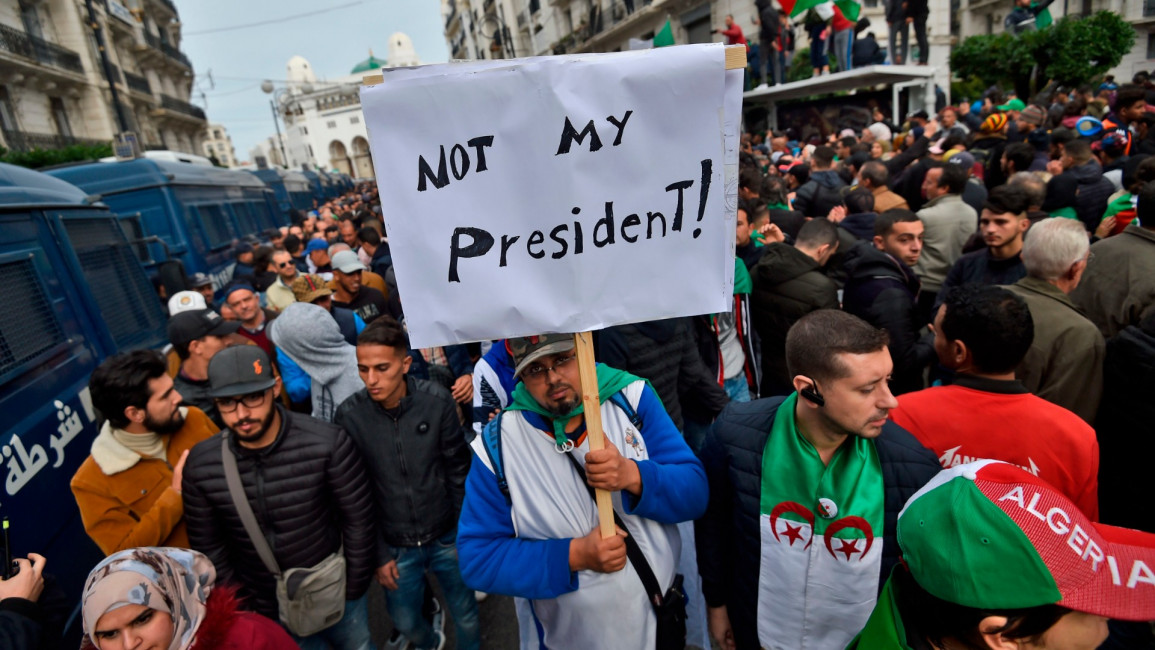Follow us on Facebook, Twitter and Instagram to stay connected
Algeria's constitutional reform 'undermined by crackdown' on Hirak activists, journalists: Amnesty
Algeria’s continued arrests of activists, protesters and journalists critical of the government is undermining the credibility of the country’s constitutional reform process, Amnesty International said.
This comes as new president Abdelmajdid Tebboune on 17 March ordered a ban on all public gatherings as part of the government's measures to contain the novel coronavirus' spread.
The Hirak movement had already suspended street protests considering the global health crisis, and there is growing concerns that the ban, along with the arbitrary arrests, are stuttering the civil rights movement and campaign for change.
A committee appointed by Tebboune completed a pre-draft of the constitutional revision and they will submit it to the President of the republic for final approval.
In a memorandum sent to the authorities, Amnesty International expressed concerns about a number of provisions in the pre-draft of the proposed constitutional revision such as those on the rights to expression and assembly and the right to life, while welcoming some of the strengthened language on women’s rights and economic and social rights.
“If the Algerian authorities wish this constitutional redrafting process be taken seriously as part of their stated commitment towards human rights, they must stop arresting opposition activists and release all those already detained or sentenced solely for exercising their rights to freedom of expression and assembly,” said Heba Morayef, Amnesty International's Middle East and North Africa Director.
“While peaceful civil society and political activists, as well as journalists, languish behind bars, the constitutional draft stands as a reminder that the authorities' overdue promises of listening to the Hirak protest movement are far from reality.”
Since late February, when the opposition movement marked its one-year anniversary, activists and critics across the country have been more frequently arrested, summoned for questioning or sentenced to jail.
|
"The Algerian regime has made a big mistake by turning more repressive against its own people," Rabah Arkam, an Algerian human rights activist, told The New Arab.
"It has exploited the confinement to try to silence the free voices, a bad way to handle the situation during the pandemic".
Recently, the Algerian League for the Defence of Human Rights (LADDH) observed that authorities have routinely resorted to abusive and provisional detention with procedures fully disregarding the rights guaranteed by Algeria's judicial system, and opposing Algeria's obligations towards international treaties and conventions.
The group also found that the majority of political detainees face vague charges such as "undermining national unity", "harming national security" and "harming the army's morale", often based on social media posts.
"The government has taken advantage of this health truce to take on Hirak activists to tighten the grip," Said Salhi, vice-president of LADDH, said.
Read more: Algeria's tightening grip on the Hirak protest movement
"Almost every day, we're seeing someone either placed under a committal order or trialled".
Constitutional reform
President Tebboune announced sweeping constitutional reforms in December, however since then there has been little in the way of transparency about the process and timeline.
Instead of publishing an online version of the pre-draft to make it available to the public, the authorities announced that a copy had been sent to selected individuals and groups for comments.
The pre-draft amendments state freedom of the press should not be subject to censorship but then condition it on respect for “the fundamental religious, moral and cultural values of the nation,” and regulation by the law.



